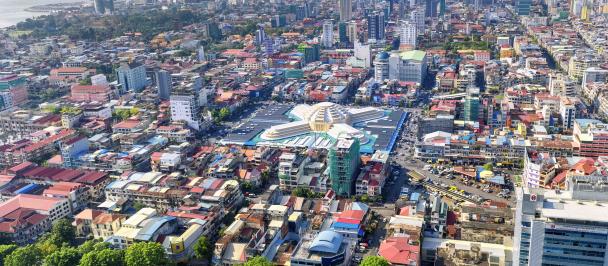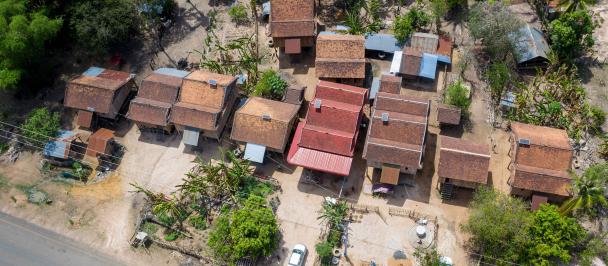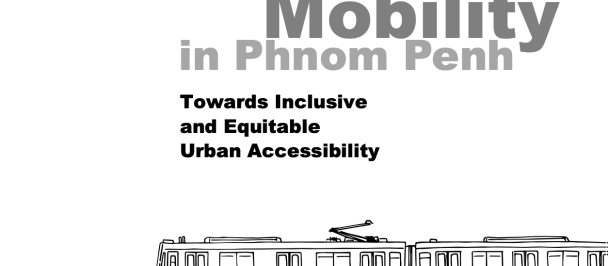Graduation Based Social Protection
Background
Cambodia has seen exceptional economic growth and poverty reduction over the past two decades. However, although millions have been lifted out of poverty, an increasingly hard-to-reach group of extreme poor remains; due to their unique circumstances, economic growth alone is unlikely to succeed in raising these households out of poverty. As a result, the eradication of poverty and hunger and the ability to reach the targets set out in the Sustainable Development Goals 1 and 2 will be delayed. A further challenge is the large population living just above the poverty line. Given the near absence of formal social protection mechanisms, these people are highly vulnerable to income shocks. The National Social Protection Policy Framework is the Government’s core social protection strategy, which seeks to adopt multi-dimensional responses to address these dual challenges.
Since 2017, UNDP has been researching and promoting the concept of graduation-based social protection. These are programmes that transfer assets to the poor instead of cash alone, enabling households to boost their incomes and secure a lasting exit from poverty. Furthermore, they are important contributors to the establishment of an effective social protection floor.
Project Summary
The project’s overarching goal is to inform national policy choices in the context of the National Social Protection Policy Framework implementation and provide a case for the adoption of graduation-based approaches across Cambodia.
- The first round involves 2,400 poor households in two localities assigned into three groups (graduation, cash and no intervention). The second round involves 800 households as a follow-on graduation validation.
- An operational case study, shortcomings, challenges, and lessons learned are documented and disseminated.
Key Expected Outputs
Hence, the project will ensure the following outputs to be attained:
- Project strategic/technical documents and partnerships with expertise institutions/facilities/ related stakeholders are produced and established to roll out the randomized controlled trial (RCT) on graduation approaches.
- IDPoor households at the sample size with statistical power, at least 2,400 households, are assessed, randomly selected, and assigned into treatment arms and control group as the RCT Protocol.
- Graduation approaches as defined in the project operation manual are implemented with treatment groups, while the livelihoods of the control group are observed in the project’s selected localities: Rovieng District of Preah Vihear Province and Tuek Phos District of Kampong Chnang Province.
- A follow-up round of the asset packages is replicated/implemented by the government’s existing structure with 800 IDPoor households.
- Knowledge products and policy cases on graduation are developed and disseminated enabling for policy adoption and replication.
Main Activities
The project will undertake these main activities:
- Constitute the project governance structure, mainly project board
- Build partnership with expertise facilities and related stakeholders
- Produce a project operation manual and RCT protocol
- Conduct a baseline survey with 3,000 IDPoor households
- Select 2,400 project participants based on random sampling and assign them into treatment and control groups
- Develop a local economic evaluation tool
- Develop a poverty graduation plan composing of livelihood capacity improvement, life skill training, financial inclusion, and behavior change communication
- Implement the graduation plan with treatment groups for 15 months and monitor the livelihoods of the control group
- Transfer cash monthly to 1,600 households assigned into treatment groups
- Build the capacity of the government, Sub-National Administrations, and local stakeholders
- Gather economic data during the project implementation
- Monitor contamination, attrition, and counterproductive factors on the project
- Conduct mid-line and end-line surveys
- Generate and disseminate knowledge products
Key Achievements
- The project board was constituted and held a meeting to review and endorse the project work-plan and budget 2021-2022
- CSO Grant agreement was signed with WVI to roll out groundwork activities, and a Letter of Agreement was signed with MoSVY to transfer cash to 1,600 households (treatment groups) in the project target areas. Staff members of the two organizations are now onboarded and deployed at their duty stations.
- Partnership with Sub-National Administrations was built to engage through the establishment of the Local Project Implementing Groups
- Project operation manual and RCT protocol were formulated
- Nearly 3,000 IDPoor households were interviewed despite the disruption from COVID-19
- 30 Government officials and project stakeholders were trained about RCT and graduation approaches
Videos
Social Protection During COVID-19 in Cambodia
Panel Discussion on Cambodia, COVID-19 & Social Protection: Responses & Lessons Learned
Graduation-Based Social Protection Stories

 Locations
Locations



